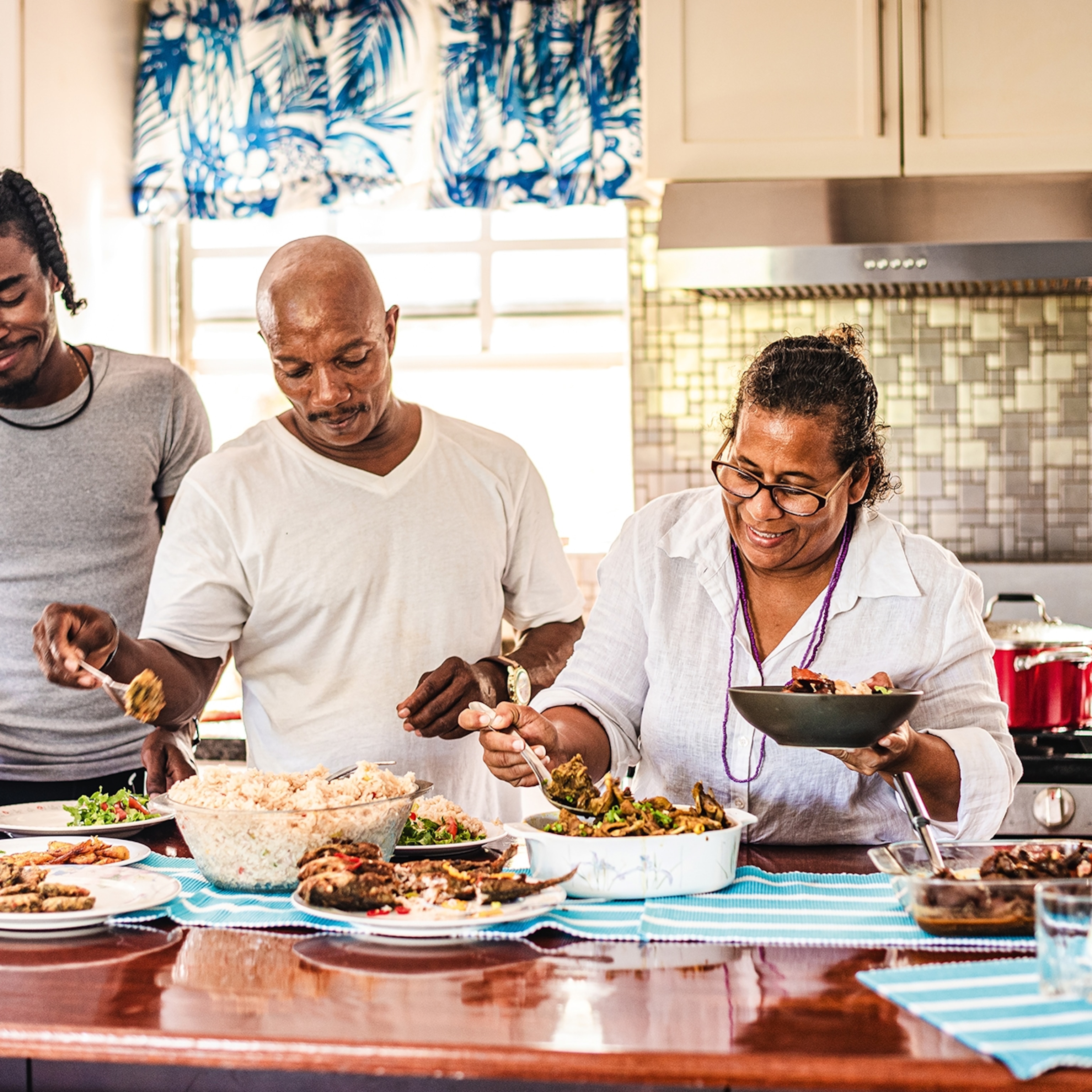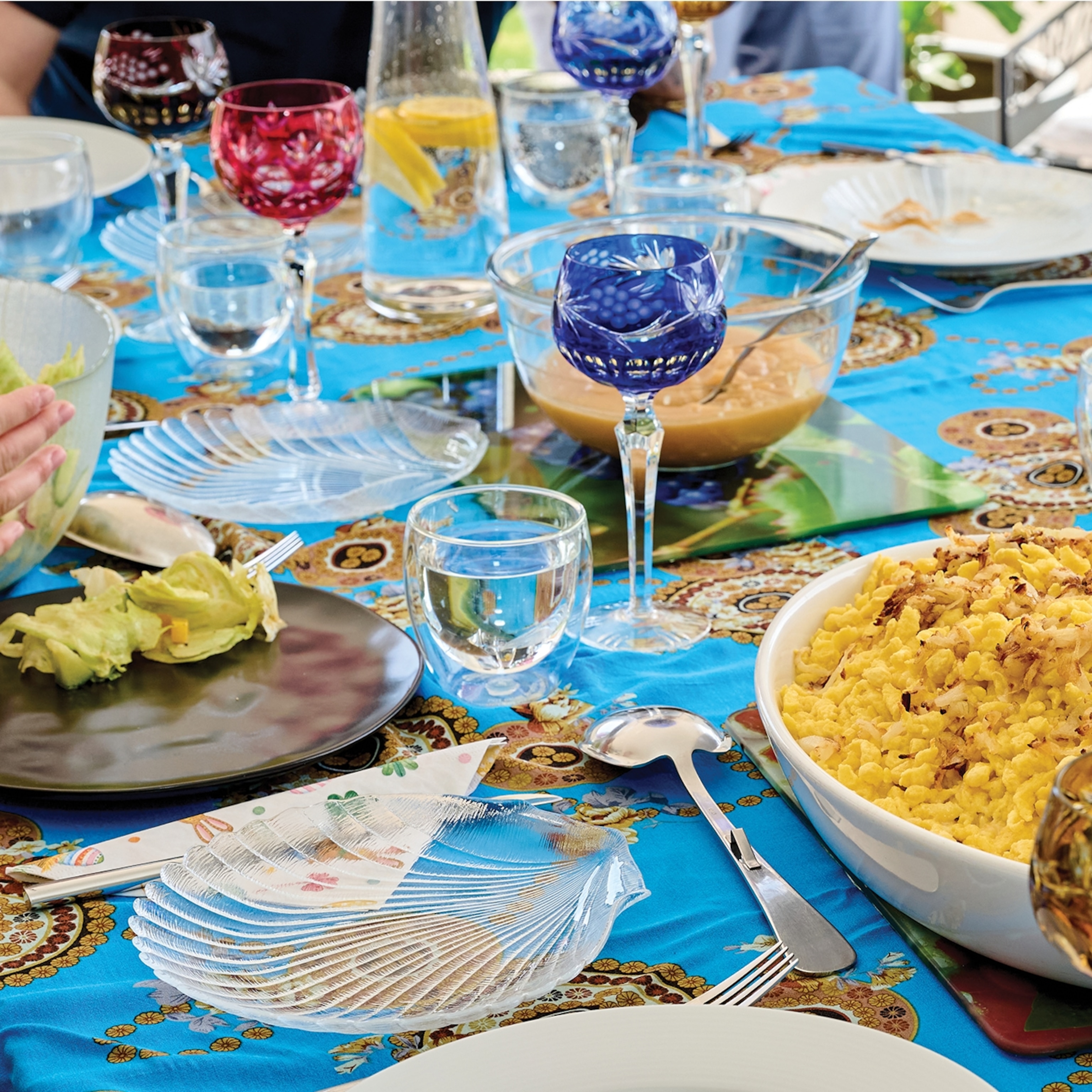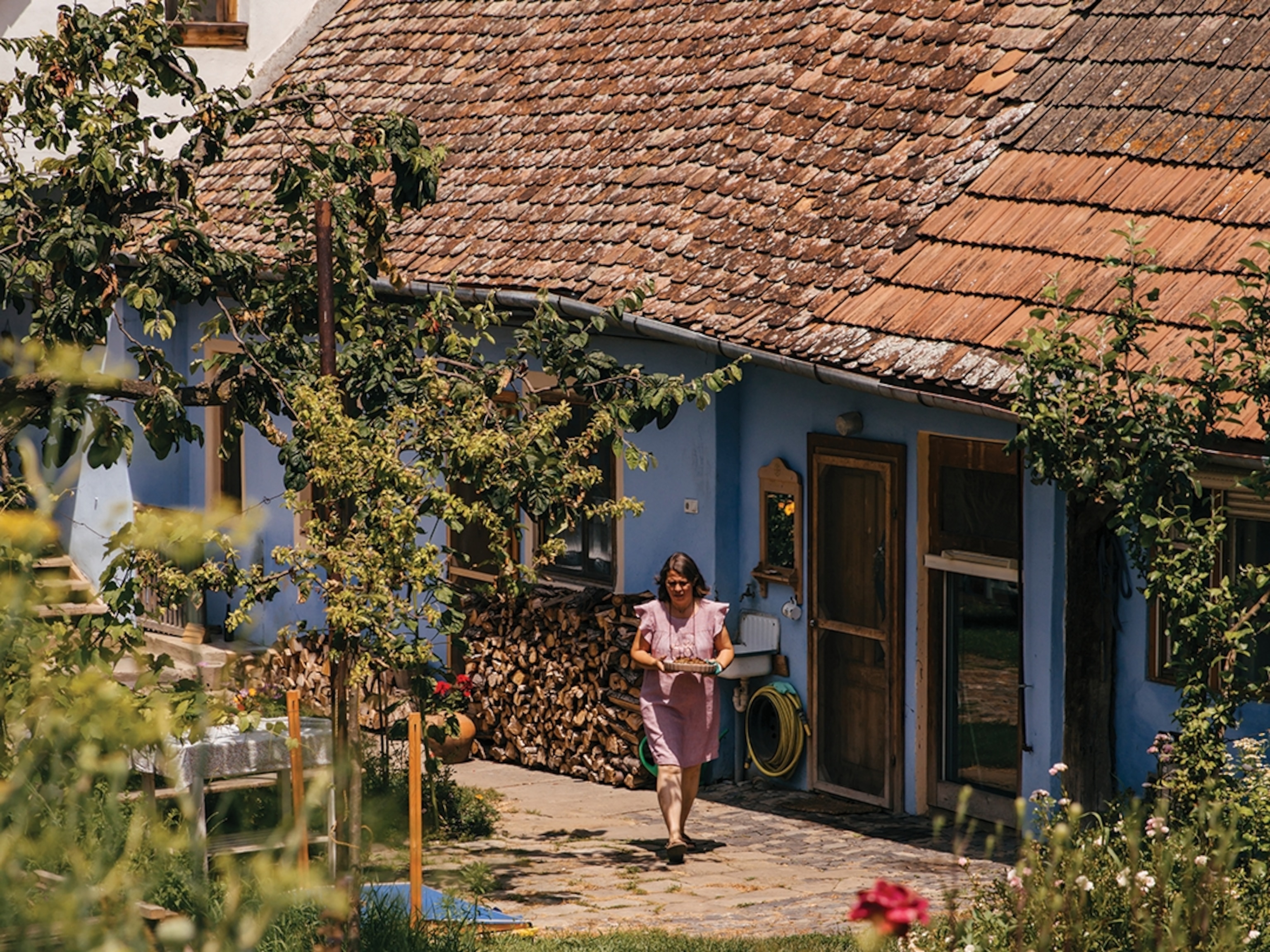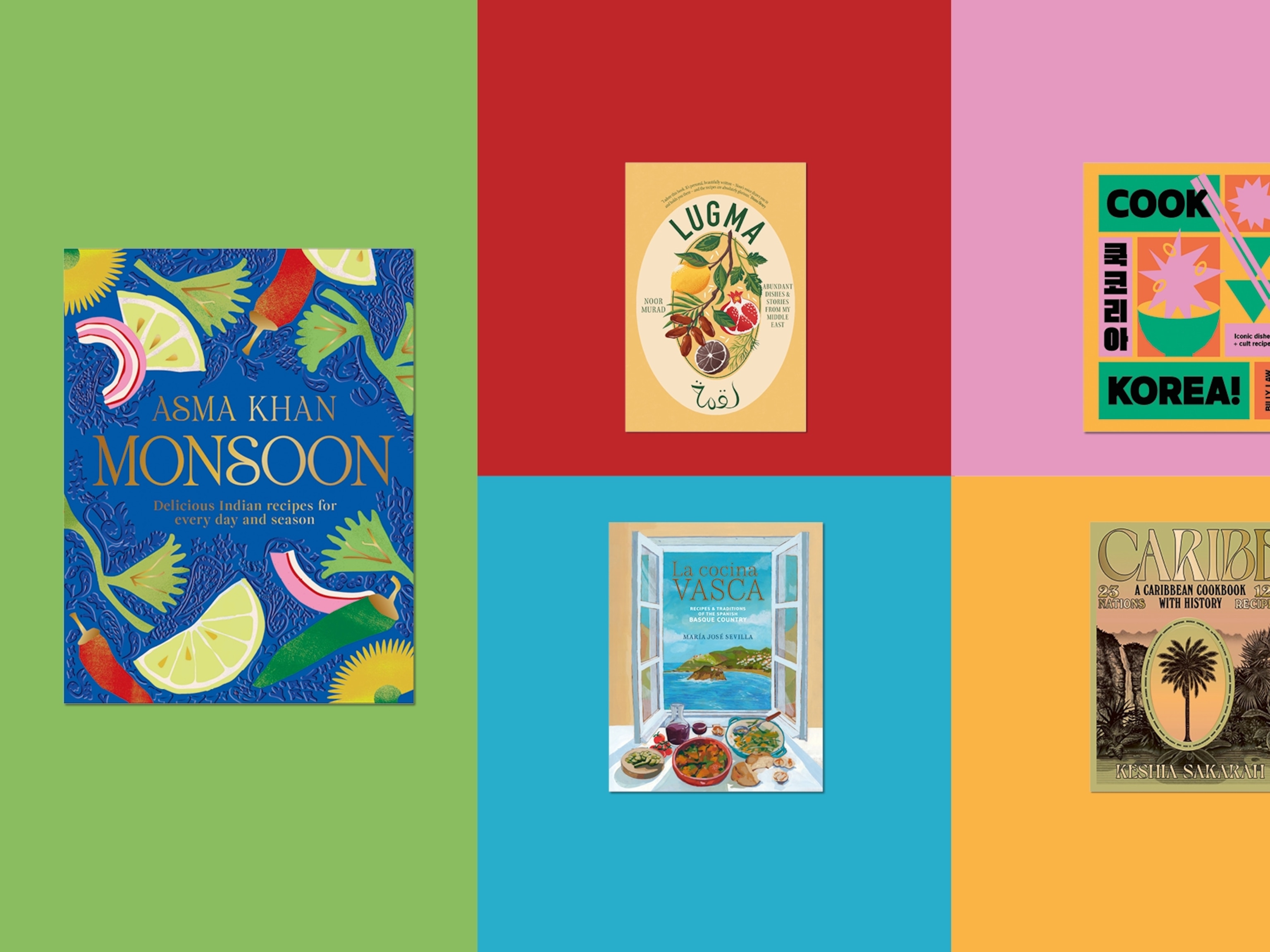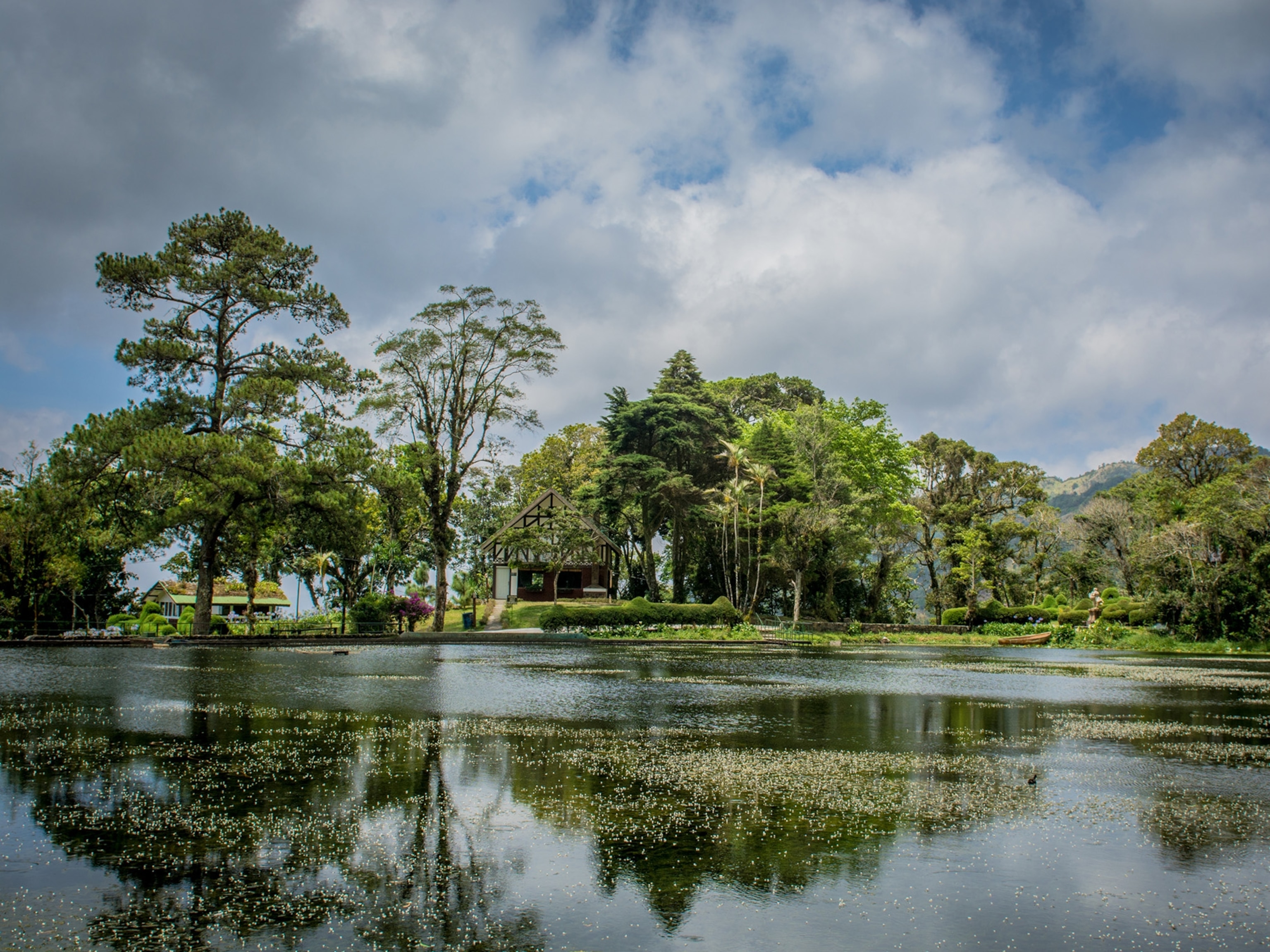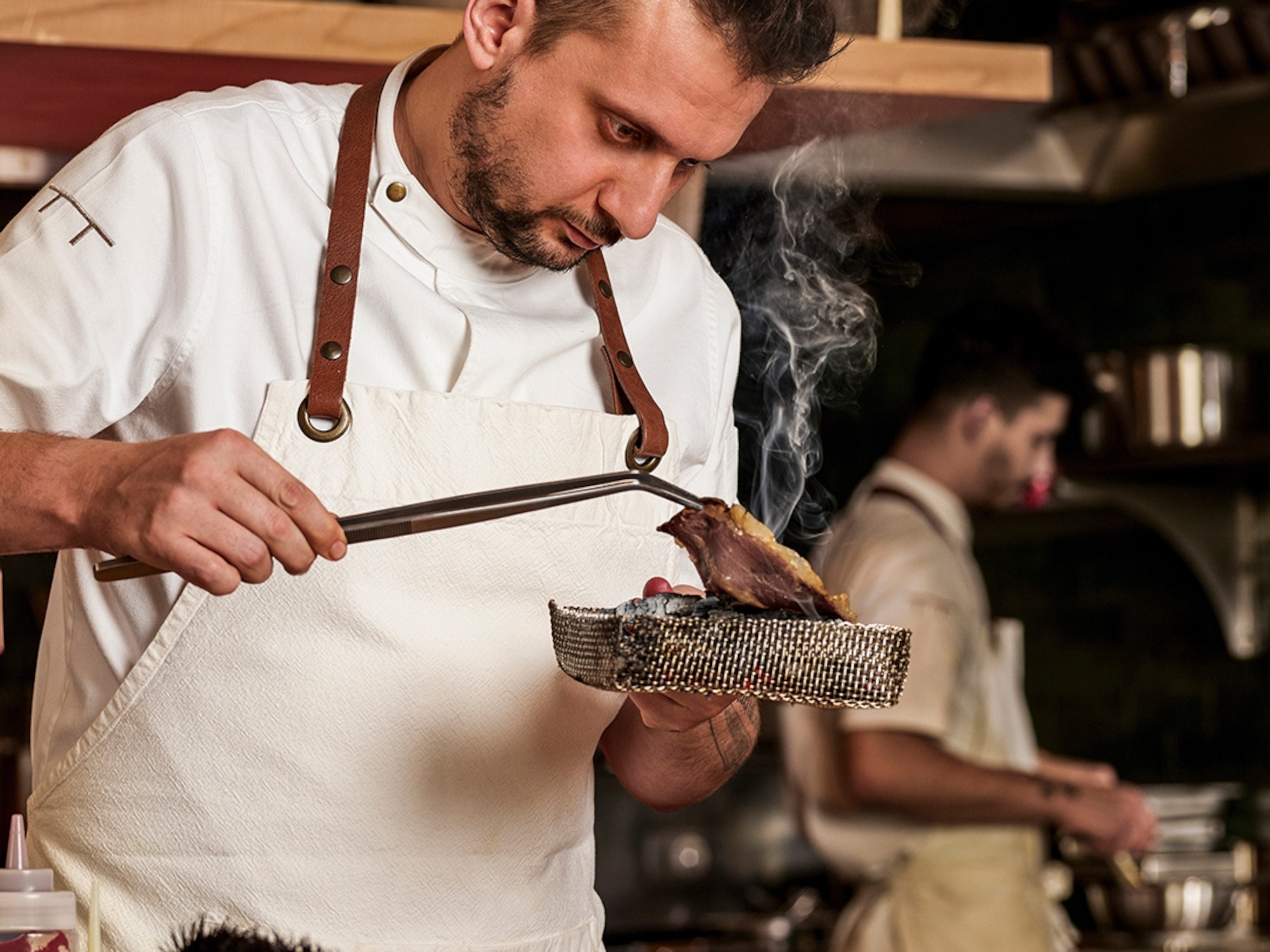Sharing a family meal cooked outdoors in the mountains of Cyprus
Kleftiko, cooked outdoors in a clay oven, is the focus of a family feast in Cyprus’s mountains, just as it has been for generations.
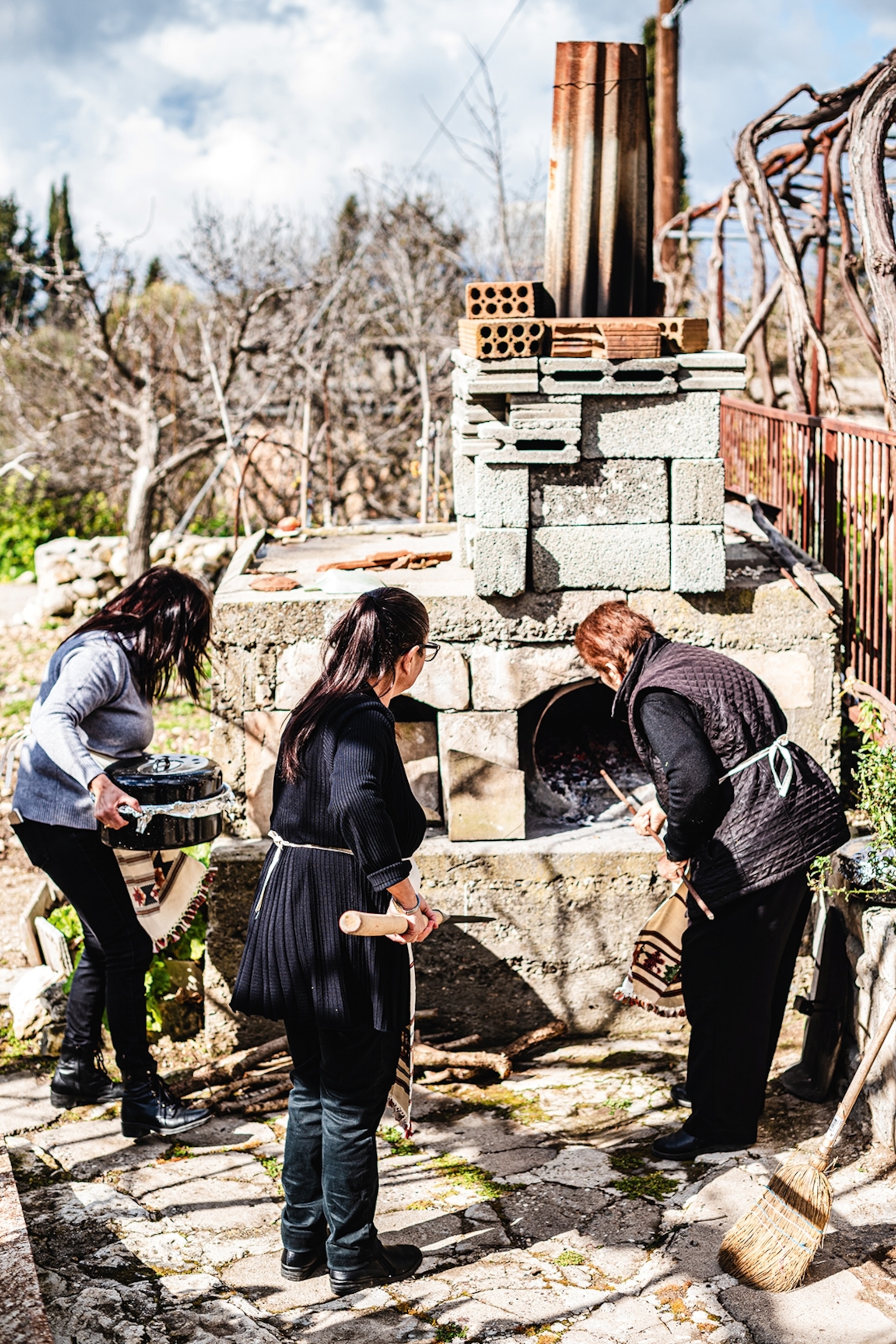
Brushing past an 80-year-old bay tree, I follow the heady scent of smoky rose. Flora’s family are in the garden, chatting over a big pot of goat in a wood-fired clay oven. Preparations for kleftiko — a slow-roasted dish of lamb or goat — are well underway.
The morning sun shines through the canopy of vines above our heads. Andreas, Flora’s husband, grabs a tiny terracotta cup in which Diamanto, Flora’s cousin, carefully places a few cubes of incense. “In Cyprus, before we cook something, we burn coal, olive leaves and rose incense to bring good luck,” says Diamanto, as a westerly wind wafts the fragrant smoke up my nose. Andreas gestures to the forest-cloaked mountains above, explaining that the incense comes from the Holy Monastery of Panagia Trikoukiotissa in nearby Prodromos, the highest village in Cyprus.
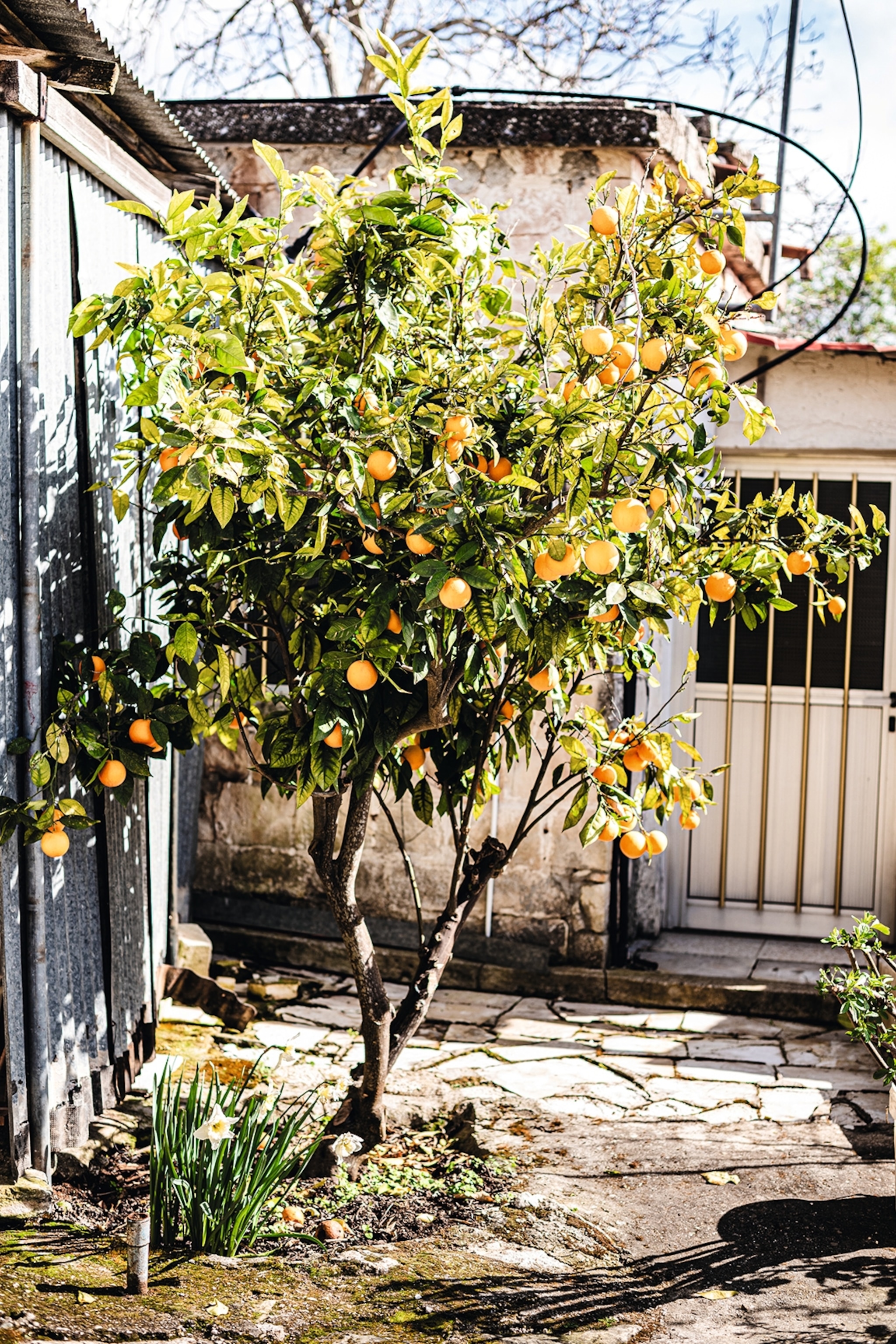
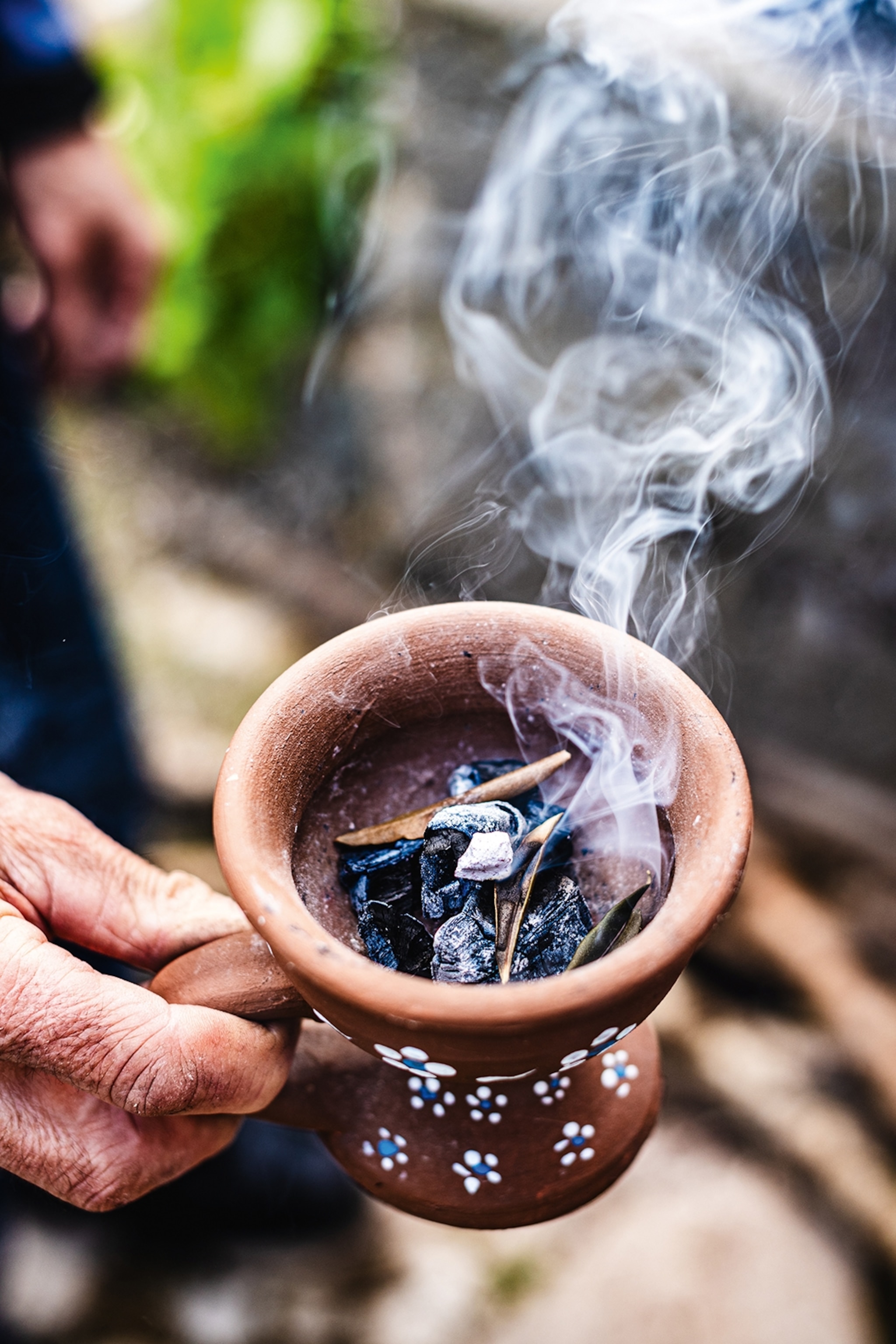
Flora and Andreas Karpi are my lunch hosts in Fyti, a sleepy village of just 80 inhabitants on a plateau in the Paphos region of western Cyprus. Married for 44 years, they have three children and four grandchildren. Andreas is retired, while Flora works at Paphos Airport. We’re also joined by Eirini, Diamanto’s mother.
All three women are proudly wearing colourfully patterned aprons handwoven by Eirini herself. Both she and her son work at the Fyti Weaving Museum, where they create textiles with fythkiotika, a traditional style of embroidery unique to the village. The family’s clay oven, built by Flora’s great-grandfather and used by every generation since, is just as steeped in tradition. The goat, the centrepiece of today’s lunch, has been cut into large chunks and seasoned with salt, cinnamon, dried oregano and freshly picked bay leaves. Andreas expertly places the pot inside the oven using a long wooden shovel. The garden hearth remains the family’s preferred method of cooking, year-round.
It takes around six hours for kleftiko to reach its softest, most succulent state. So, as the incense burns out, we leave the goat to its slow cooking process, and head into the kitchen to make dessert. All except Eirini, who takes off her apron, rests her wooden cane against the wall and settles into an armchair. Cindy, the family dog appears at her feet for another morning nap.
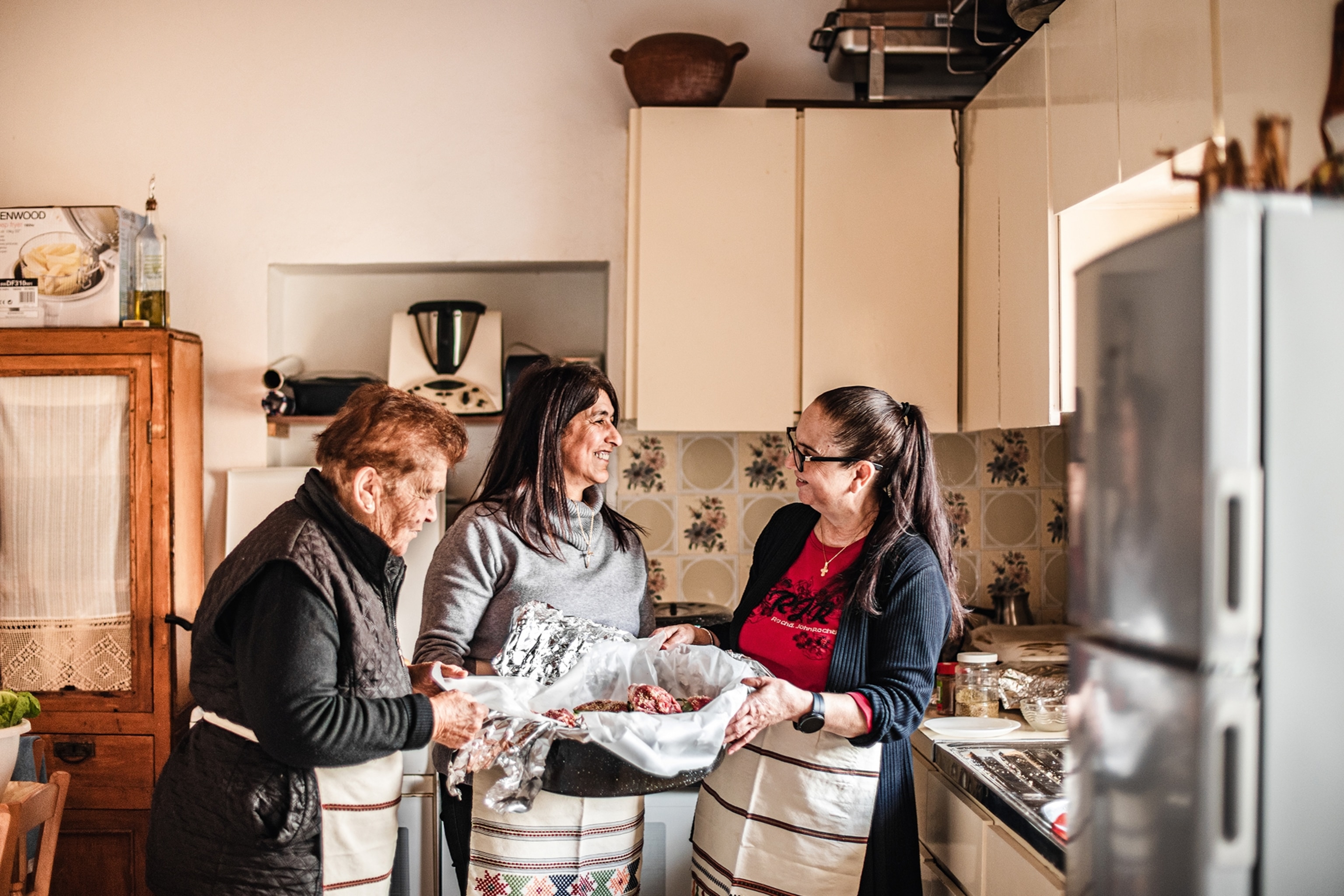
Flora’s house — which belonged to her maternal grandmother — has been kept largely the same for decades. Just above the kitchen table is a framed photo of her parents, and original wooden cabinets, floral wall tiles and off-white lace curtains all serve as tokens of remembrance. Shelves, fridge-top and coffee tables are lined with decorative wooden lamps, fythkiotika cloths and Greek Orthodox icons of Jesus and the Virgin Mary.
While Flora rummages around the cupboards, Andreas hands me a coffee — black, stronger than life itself, topped with ‘kaimaki’, a golden-brown froth. The coffee cup has been in the family for over 45 years, he tells me with a slight British twang — his accent is the result of moving to the UK when he was six, when his parents opened fish and chip shops in London and Birmingham.
“I came back here when I was 25 to get married and raise a family,” says Andreas, and Flora chips in: “These days, everyone is always running around and so busy, but we want the family to grow up knowing each other. We eat together very often.”
Flora starts scooping small balls of dough to make loukoumades — the fried, crisp, syrup-soaked doughnuts popular across Greece and Cyprus. She drops each perfect sphere in a pot of boiling sunflower oil with the ease of someone who’s done this countless times. Nothing makes her happier than watching her grandchildren enjoy her food, she tells me. Their go-to dish is makaronia tou fournou, which she says she makes at least once a week, gesturing to the one currently baking in the kitchen oven. Better known in Greece as pastitsio, it’s a pasta bake with beef, bechamel sauce and tomato paste, which Flora makes with pork (as do most Cypriots) and seasons with cinnamon, pepper and mint.
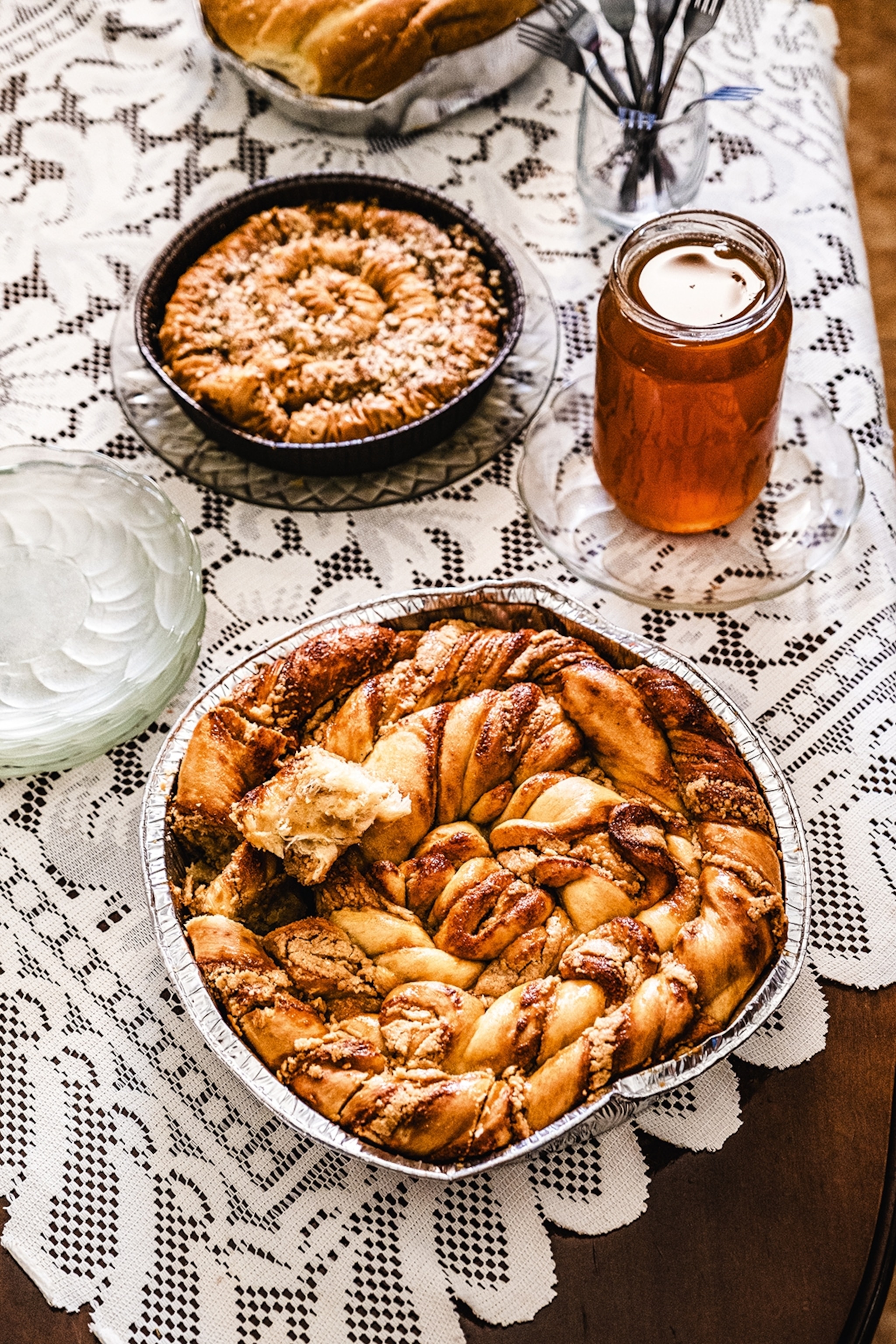

While we chat, the kitchen hums and steams with activity. Bubbling on stoves, cooling on worktops and roasting in ovens is a showcase of Cypriot dishes. Along with the loukoumades and makaronia tou fournou, there’s also koupepia (vine leaves stuffed with minced pork, onion, rice, tomatoes and mint) and kullourouthkia (swirls of dough stewed in a molasses of grape juice).
As she juggles multiple tasks at once, Flora regales me with family stories, including one about a dish her mother made with roast goat, potatoes and fresh tomatoes. “She made the paste by adding salt to fresh tomatoes and leaving them out in the sun to dry. The smell, the taste, there’s really nothing like it,” she says. Then, suddenly: “Now, let’s go to Polemi!” she says, untying her apron, indicating it’s time for an excursion.
To my astonishment, we’re going to the neighbouring village, Polemi, to buy yet more food. Apparently, more people will be joining the family meal later. Due to Fyti’s lack of facilities — there’s no school or grocery shop — Flora often makes the 10-minute drive over to Polemi for basic supplies. While Andreas and Eirini watch over the kitchen, Flora, Diamanto and I hop in the car and judder along the bumpy road out of Fyti.
“We had no television growing up — we used to play in the fields, do embroidery,” Flora tells me when I ask her what it was like in Fyti when she was a child. “It wasn’t like now — there were no mobile phones, we only had one telephone in the village square.”
The chat quickly returns — as most conversations seem to in the Karpi household — to the goat. Flora says they’re making enough for the weekend because Monday marks the first day of Lent on the Greek Orthodox calendar. For 40 days from Green or ‘Clean’ Monday, meat, eggs and dairy are prohibited. It’s a public holiday and the family will celebrate by having a plant-based picnic. But before then: a feast of goat.
In Polemi, we pick up milk, green apples, kouloumbra (kohlrabi) and mpiskota me indokarido (biscuits with coconut) from a convenience shop before heading to the bakery, where owner Anastasia has been making bread for more than 30 years. We buy a bag of freshly made koulouri, a local bread seasoned with cumin and aniseed. It’s still comfortingly warm when Anastasia hands it to me.
On our return, Flora heads back to the kitchen, while Diamanto takes me on a quick tour of the village. First, we head to Fyti Weaving Museum, where Eirini appears, almost out of nowhere, to demonstrate her embroidery skills. As we explore the surrounding streets, villagers invite us in to taste homemade sweet treats. Before I’ve finished eating galatoboureko (custard-filled filo pie) at one friendly neighbour’s house, another has opened their door beckoning for me to try their ravani (semolina cake) and tahinopita (tahini sweet bread).
It’s a lively scene, but Fyti is a village that used to be far livelier. There’s a closed taverna on the village corner and a derelict distillery that once made zivania, Cyprus’s potent brandy. But the Karpi-Diomidous family is determined to entice life back to the village. Flora wants to open a new taverna, and they have plans to lobby the government to bring school children to Fyti so they can learn the art of weaving.
Back at the house, the goat is finally out of the oven and several tables have been pushed together to create a canteen-style dining room. The main dishes are already on display, along with tahini, hummus, taramasalata, kouloumbra, roast potatoes and olives seasoned with oregano and coriander seeds (possibly the best olives I’ve ever had). There’s a carafe of wine at either end of the table and a special bottle of red in the middle, made using indigenous maratheftiko grapes by Tsangarides Winery in the local village of Lemona.
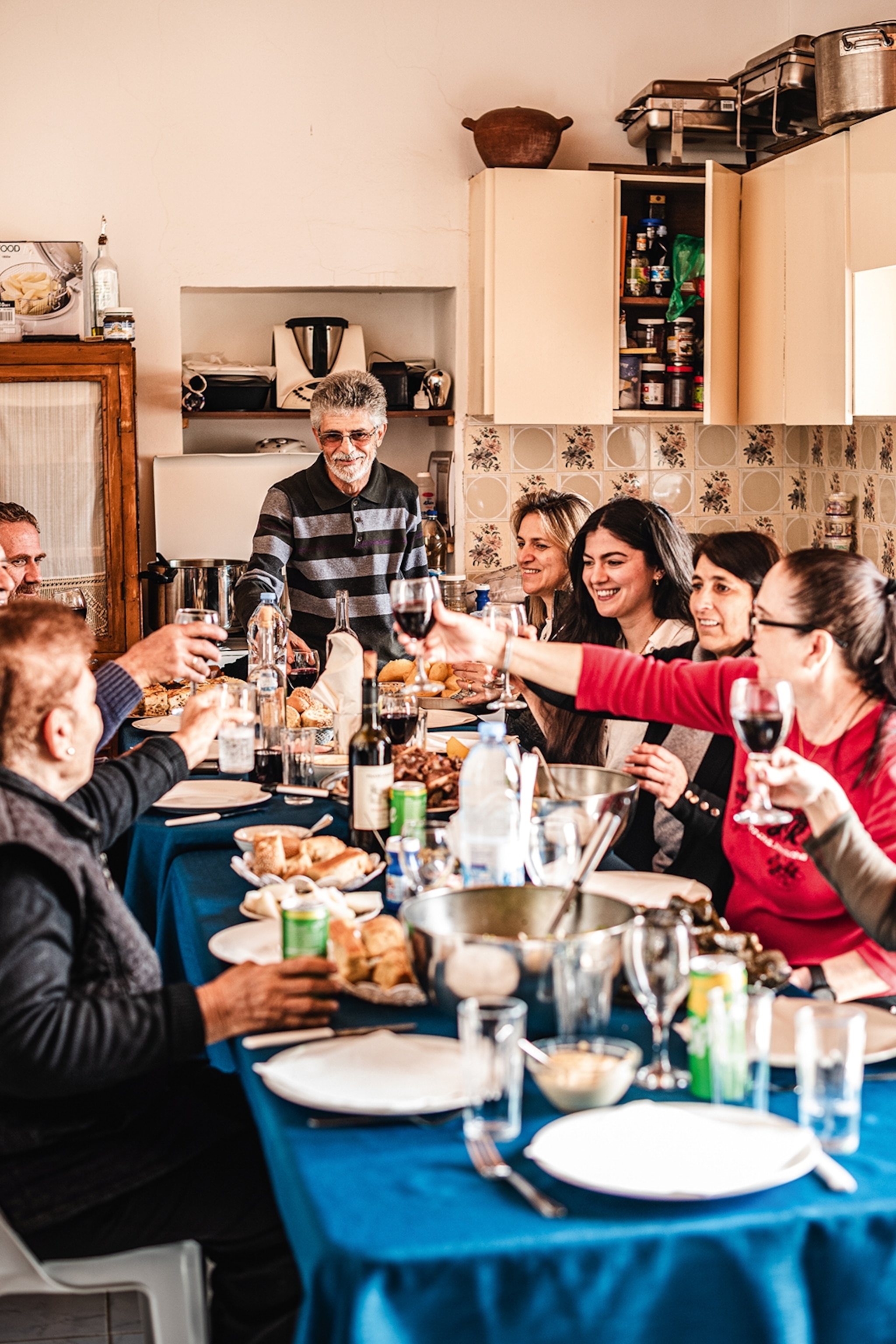
“Kalispera!” a voice suddenly booms behind me, as Eleni Parpouna, another of Flora’s cousins, arrives clutching a gargantuan tray of homemade baklava with pistachio, honey, walnuts and olive oil. The next 20 minutes are a blur as more friends and family fill the kitchen to join the festivities, before we sit down to eat.
Diamanto serves me kleftiko followed by the fried potatoes, bread and a refreshing salad of cabbage, cucumber and peppers. Flora appears from behind me, puts a slice of makaronia tou fournou on my plate and pours me a glass of wine. My first bite is of the goat, which is smoky, flavourful and velvety soft, melting the second it hits my mouth.
Conversations crisscross the table — pinballing between Greek, English and Gringlish — ranging from wine-making machinery to the impending frivolities of Paphos Carnival later today. As I near the end of my plate, I let out a satisfied puff of air when Eleni’s husband Kyriakos interjects: “If you go to a Cypriot home and finish the food, it’s not good, it makes us feel uncomfortable. Which is why we always make more than we need.” Moments later, more goat appears on my plate.
After dinner, Flora, Diamanto and Eleni clear the table to make room for dessert. Amid the clanging of plates and pans, Eirini is fast asleep on the armchair. A buffet of halvas (semolina pudding with almonds), loukoumades, baklava, kullourouthkia and koulourakia me to meli (Greek biscuits sprinkled with sesame seeds), arrives while Andreas makes more coffee. “This isn’t anything extraordinary” he says. “It’s just what we do when the family gets together.”
Just then, Flora walks by with a tray of kleftiko for tomorrow’s gathering. “Right, time to sit down for some more food,” says Andreas. I think he’s joking, although, after today, it’s hard to tell.
TUI offers seven nights at TUI Blue Pioneer Beach Hotel in Paphos on a B&B basis, including flights from Gatwick, from £735 per person. Prices may vary.
This story was created with the support of Cyprus Deputy Ministry of Tourism.
To subscribe to National Geographic Traveller (UK) magazine click here. (Available in select countries only).
